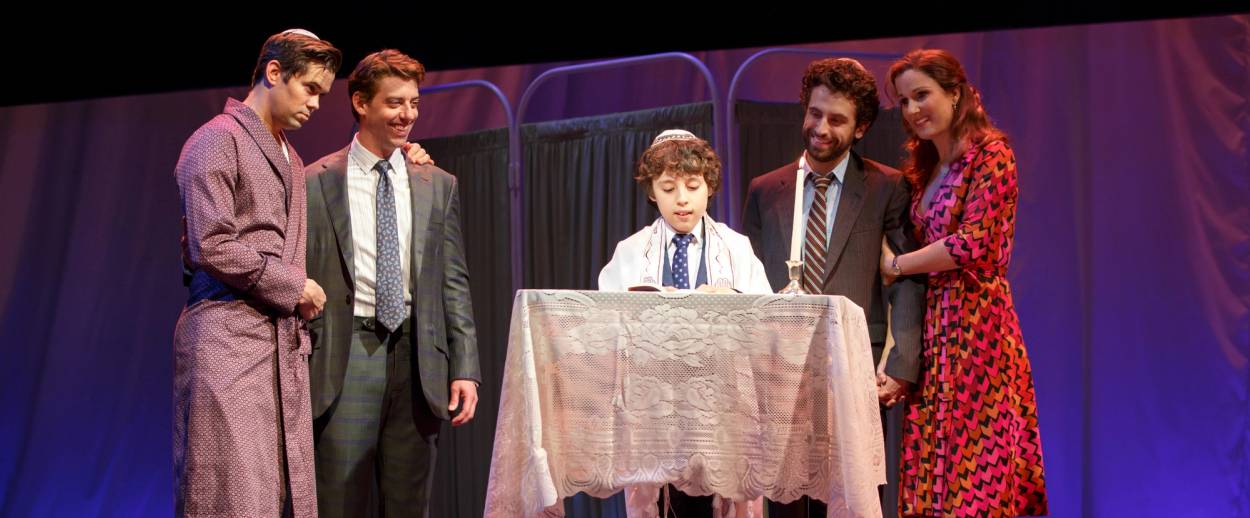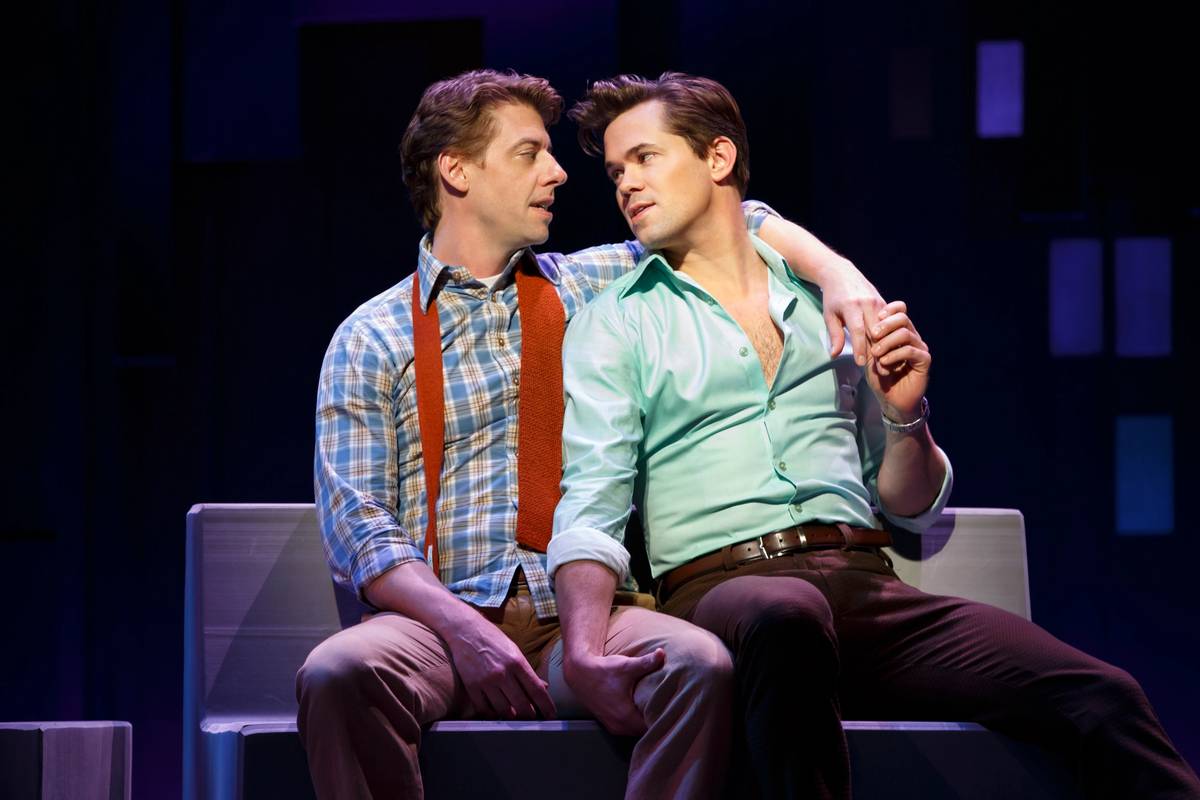The Man Behind Broadway’s Big Jewish Musical
Tony Award-winning ‘Falsettos’ composer William Finn on bar mitzvahs, the AIDS crisis, and his very first show—in Hebrew




With the revival of Fiddler on the Roof set to close in December, Broadway’s new big Jewish show is Falsettos—a musical that opens with a song called “Four Jews in a Room Bitching” and ends with a bar mitzvah, after the audience learns about the “Miracle of Judaism” and watches “Jewish boys who cannot play baseball play baseball.”
“It’s a drama about a Jewish family,” composer William Finn told me in a telephone interview last week. “The bar mitzvah is about becoming a man. It’s about growing up.” And it’s not just Jason, the chess-obsessed bar mitzvah boy, who’s growing up. All the men around Jason are growing up, too: his father Marvin, who came out as gay and divorced Jason’s mother Trina; Marvin’s shallow but endearing lover Whizzer; and Jason’s stepfather Mendel, who was Marvin’s psychiatrist before he married the newly divorced Trina. (“So I don’t have a psychiatrist—except on the Jewish holidays,” Marvin sings in the Act II opener.) Over the course of the show, “all the men become men,” Finn said. “So it’s not just Jason’s bar mitzvah. It’s really everyone’s bar mitzvah.”
Finn grew up in a Conservative Jewish family in Natick, Massachusetts, attending Temple Israel, where his rabbi was Harold Kushner—bestselling author of When Bad Things Happen to Good People. He was a good student in Hebrew school, and his interest in theater was already evident. “I don’t think I ever told anyone this: The first play I ever wrote was in Hebrew,” he told me, although he can’t remember what it was called. Finn was still a student at the time, and of course, he cast himself as the lead in the production, which was performed one Sunday morning at temple. “I have no idea what it was about. But it was horrible, I guarantee it. I couldn’t write plays, and I couldn’t really speak Hebrew, so how good could it be?”

Finn went on to a long and varied career, bringing his conversational lyrical style to a wide range of shows, from the serious (his 1998 show A New Brain chronicled his own near-fatal experience with a neurological ailment called arteriovenous malformation) to the light-hearted (The 25th Annual Putnam County Spelling Bee ran on Broadway in 2005, featuring Jesse Tyler Ferguson before Modern Family made him a household name). He’s written a lot about death, including an entire song cycle called Elegies that ran off-Broadway in 2003, touching on everything from AIDS (“Mark’s All-Male Thanksgiving”) to his dying relatives (“Passover,” another very Jewish Finn creation, set at a Seder) to the pets he loved and hated (“My Dogs”). But he’s also a master of comedy, as is evident in a number like “Republicans” from his 2007 off-Broadway revue Make Me a Song, or “Stupid Things I Won’t Do”—a song he wrote for Elaine Stritch.
The characters in Falsettos have proven his most enduring. They first appeared in the musical In Trousers in 1979, then again in March of the Falsettos in 1981, and finally Falsettoland in 1990—all off-Broadway. The second and third parts of the trilogy were later combined to become Falsettos, which premiered on Broadway in 1992 at the Golden and ran for more than a year, winning Finn two Tony Awards. I saw that production 24 years ago with three friends, all of us young gay men who’d recently finished college, all of us facing the horrors that were the very worst years of the AIDS crisis. I remember crying, especially in the second act, where AIDS takes center stage. But I also remember being moved to tears not by the specter of death that hangs over the end of the show, but by a simple love song earlier in the score called “What More Can I Say,” which features two men in bed together—something I had never seen on stage before, and only very rarely since. And there were even times when I cried from laughter, particularly at Trina’s show-stopping comic number “I’m Breaking Down” in the first act (“I’d rather die than dry clean Marvin’s wedding gown”), and a running gag about “the lesbians from next door” struggling to cook kosher food for the bar mitzvah (“it’s so good, you’d think it’s Italian”) in the second.
The AIDS crisis today is—thankfully—in a fundamentally different place than it was 24 years ago. (“Reliving that time is not what’s great about this show,” Finn told me. “But we need not forget it.”) Nonetheless, seeing this revival of Falsettos, set to open October 27 at the Walter Kerr Theatre, my tears returned, along with the laughter.
“People want to laugh and they want to cry,” said Finn. “They do both in this show.”
Wayne Hoffman is executive editor of Tablet Magazine.